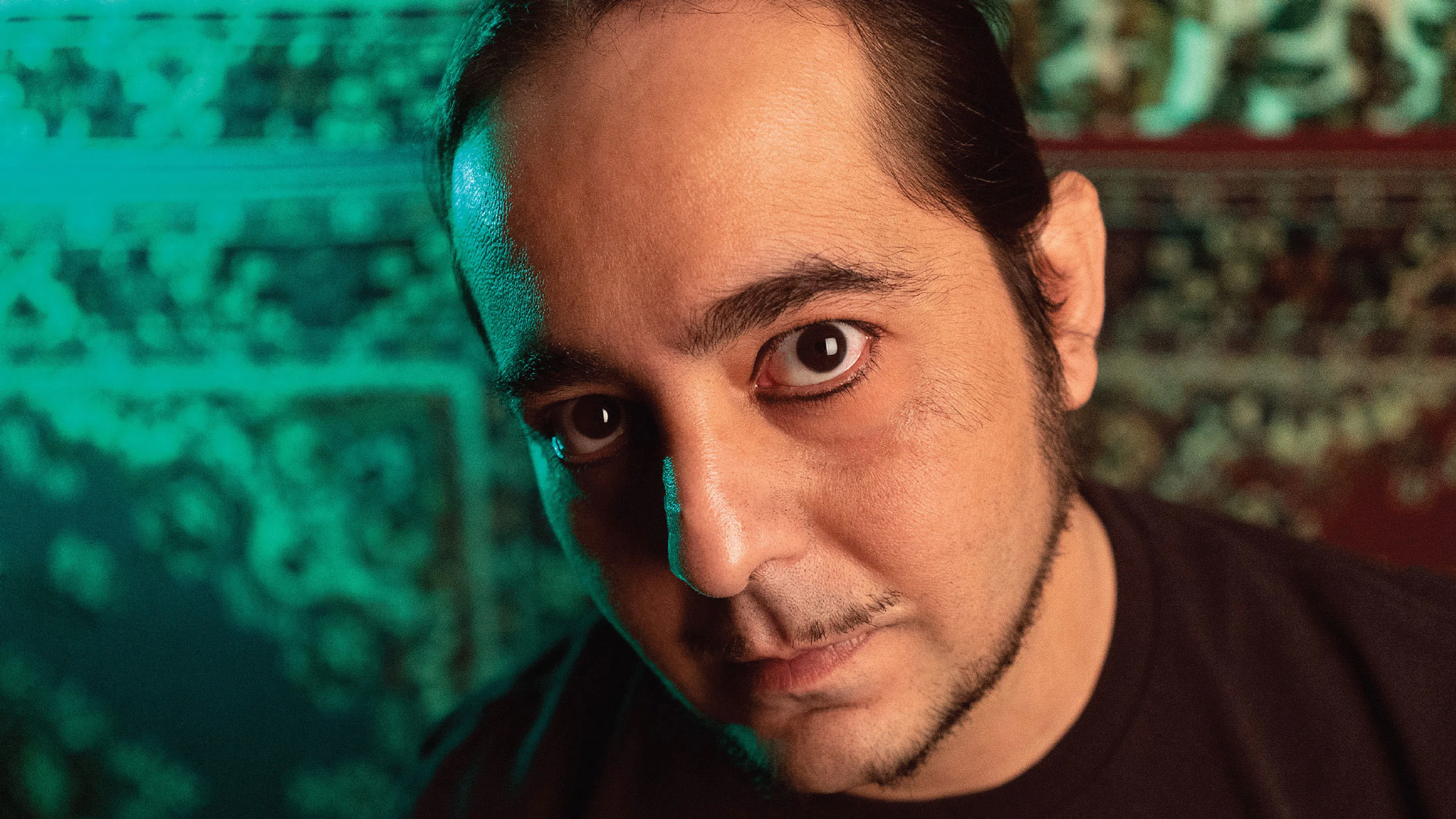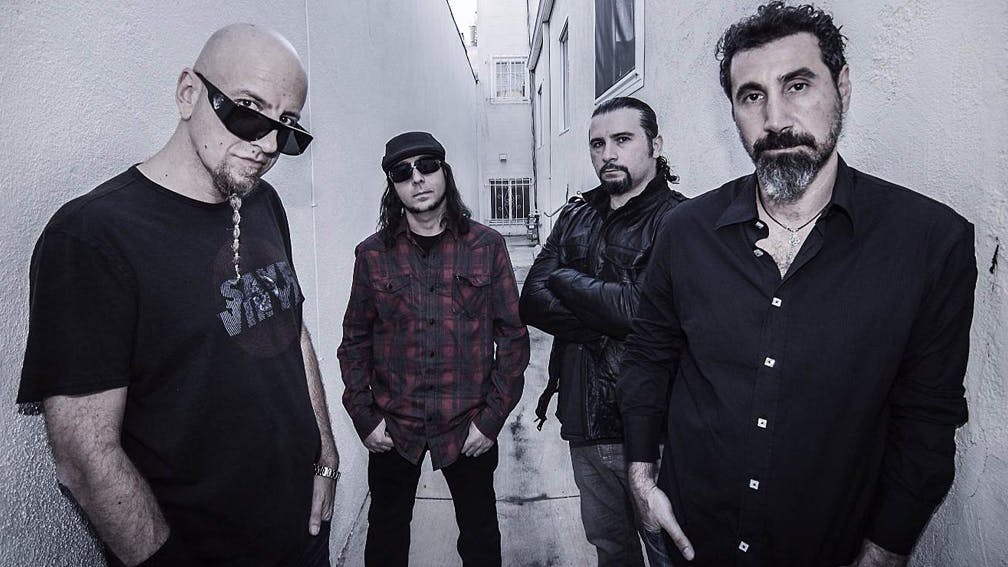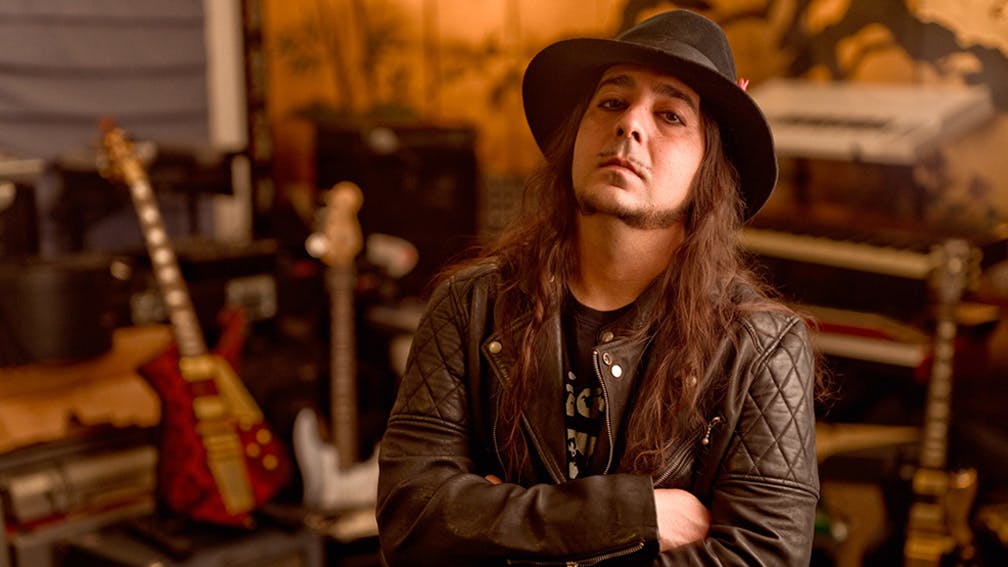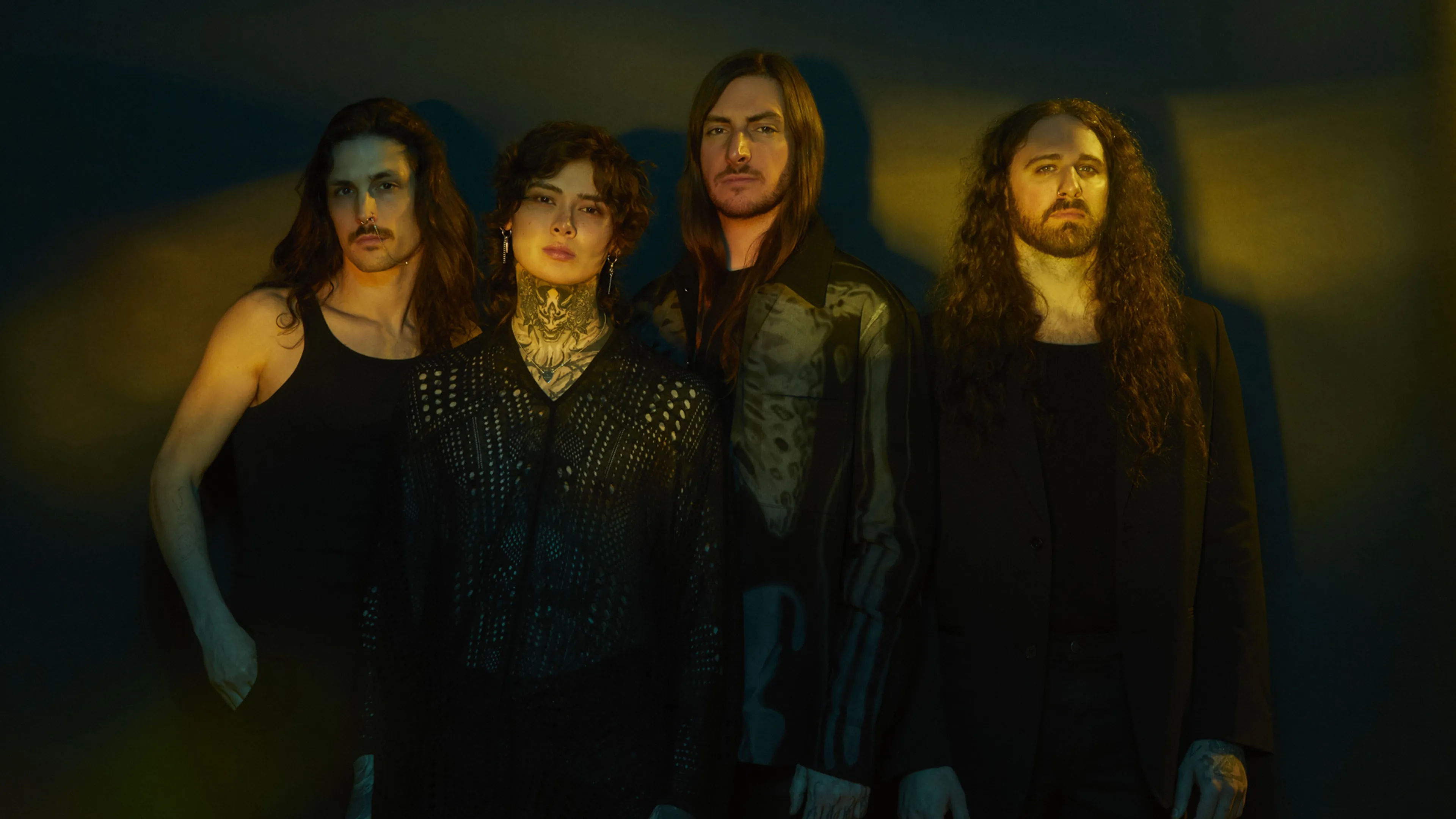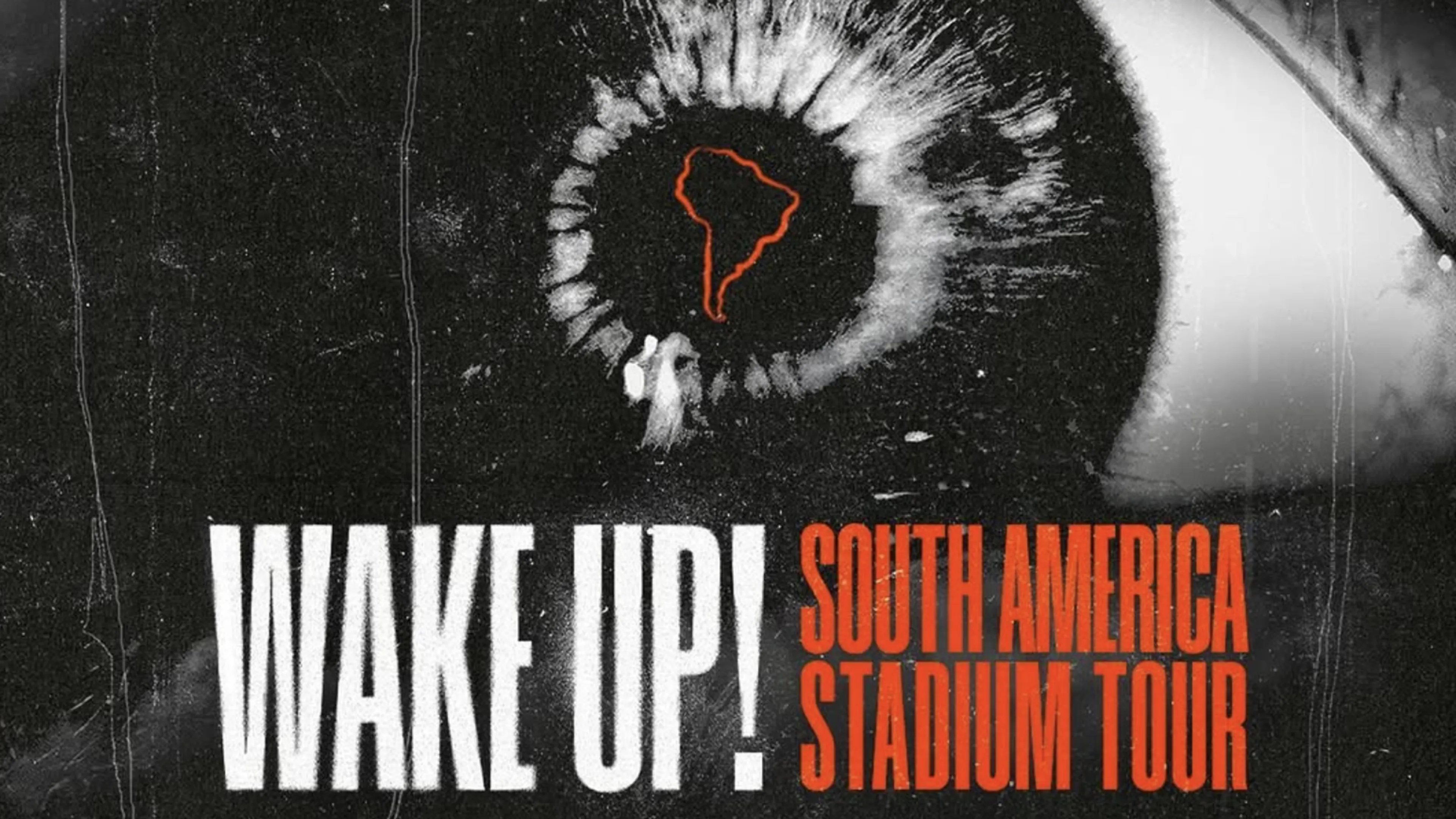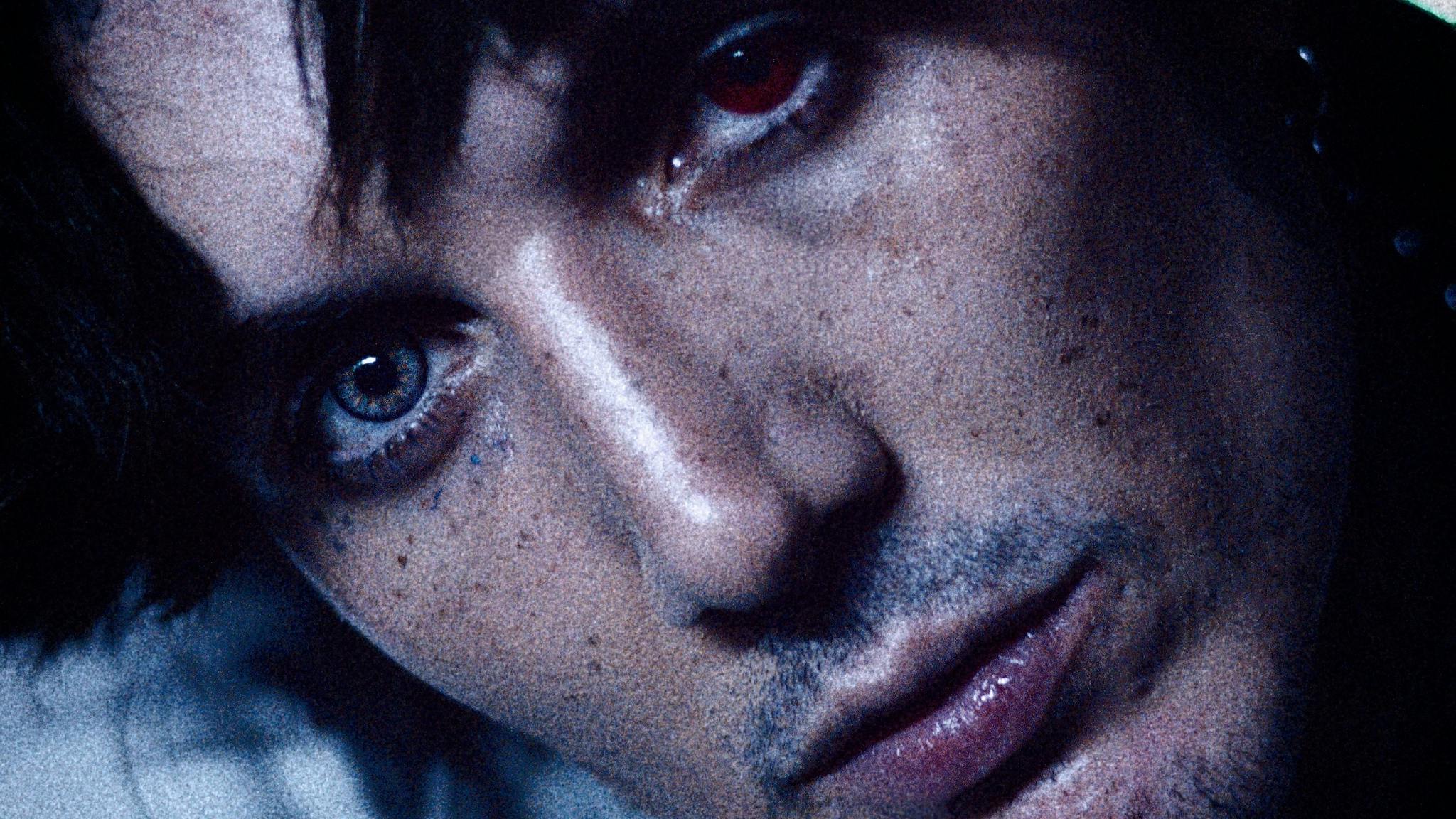Once every two weeks, Daron Malakian visits Disneyland. Along with his girlfriend Gayane, he strolls the amusement park in Anaheim, California, boarding rides and marvelling at the vision of its founder, Walt Disney.
Between the months of October and April, he will drive to the Staples Center in Downtown Los Angeles to watch the city’s ice hockey team the Kings, at which he has season tickets at centre ice. “That gets me out of the house two or three nights a week,” he says. The 44-year-old sees his family on Sundays, and most evenings will head out to dinner with his significant other. He stays up late, and after Gayane has gone to bed, at two or three in the morning he will retreat to a room in his house in which he will play and write music.
“I’m kind of a hermit,” he says. “I don’t have a group of friends that I party with. I don’t go to strip clubs or do any of the other stuff that people assume a rock musician would do.”
It has been a quarter of a century since Daron Malakian formed System Of A Down, the most brilliant and startlingly original metal band of recent and not-so-recent times. But despite selling many millions of albums, the group’s tenure as recording artists lasted for just seven years, and ended with the release of the Hypnotize album, their fifth, in 2005. Since then, much to the chagrin of its founding member, System Of A Down have become a heritage act that tours only sporadically and doesn’t record at all. It might even be fair to call it a cash cow. Tickets for last year's tour of the U.S. cost as much as $160 (approximately £122) face value.
One result of so much spinning of wheels is that fans of Daron Malakian’s music have been short-changed. Dictator, the second album from his Scars On Broadway project, was the first new music to which he put his name for a decade. The guitarist and songwriter makes no apology for this – “I write music constantly, even if no-one gets to hear it,” he says – but does admit that it’s nice to be back in the swim. “It’s even good to be doing interviews,” he says, “’cause I’ve hardly talked to anyone in the past 10 years.”
You were born in Hollywood to parents who had emigrated from Iraq. As a child, how aware were you of your family’s backstory?
“As a child I knew there was war in Iraq. There was the Iran-Iraq war. The family that my parents left behind was still part of that; my uncles and some of my cousins were actually soldiers in that war. So I knew they came from a place where things weren’t so stable. And both my parents were artists when they were in Iraq. My dad was pretty well-known for his dance choreography, and my mother had a degree in art and was teaching at the university. So I knew that they left a life behind. I realised that they left a lot behind as artists to come to the United States. My mom worked in a bank for almost 30 years, while my dad worked a lot of odd jobs. So that played on my mind. If you’d asked me when I was five years old what I wanted to do with my life, the answer would have been to do what I do now. I knew when I was really young that I wanted to play music and be in a band. I felt it was destiny that my parents gave up their art and lives to come to this country so that I could make my mark. That was a big driving force for me.”
